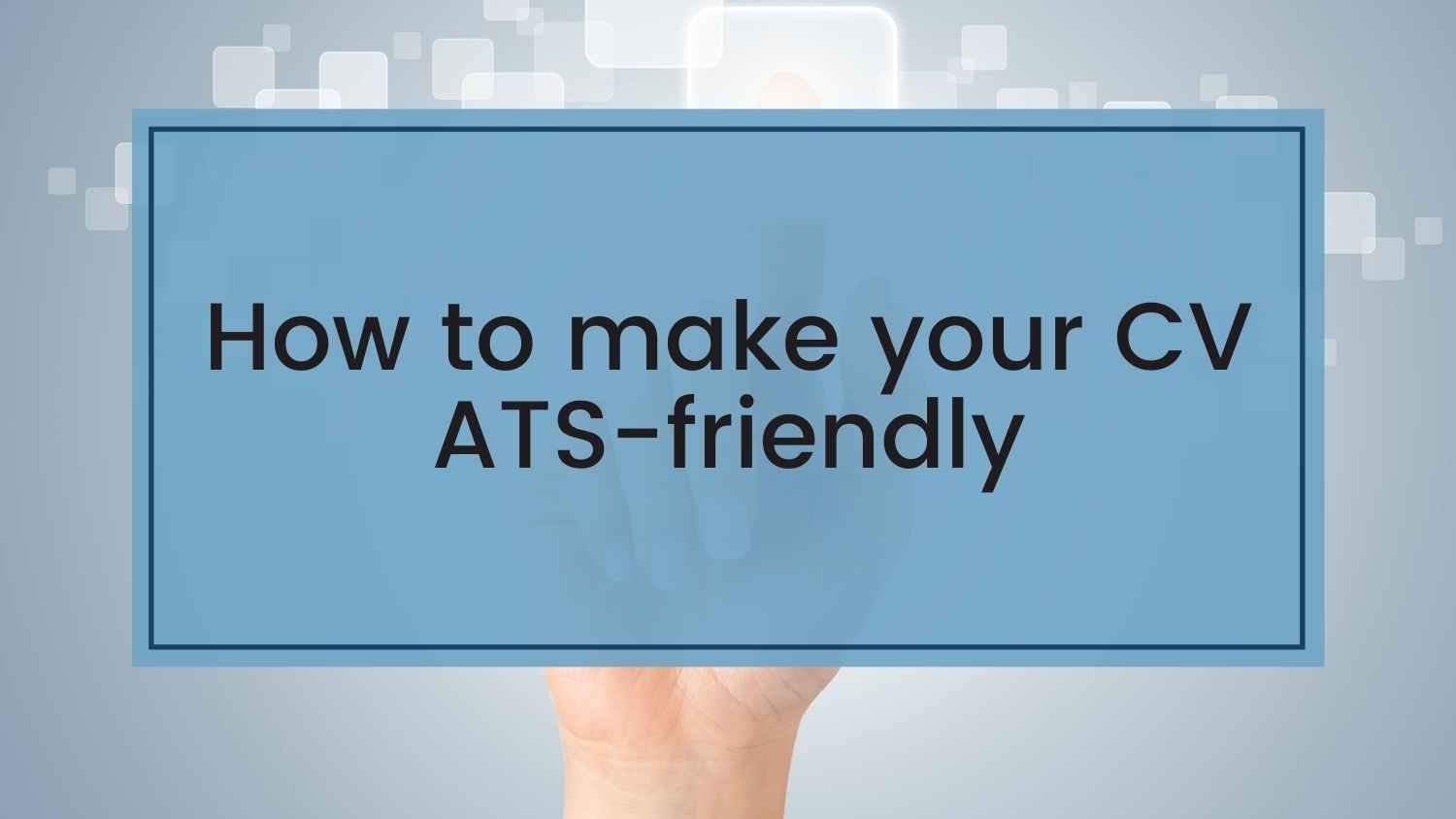EU Blue Card visa application for Germany
The ultimate step-by-step guide for your EU Blue Card visa application for Germany.
This guide will help you figure out
the first steps to get your visa for Germany as an EU Blue Card candidate
what documents you need for a successful visa application
how much time to plan for each step
Step 1: Find out if you are eligible for an EU Blue Card
Read up on the EU Blue Card requirements for Germany or run our quiz to make sure you meet the requirements to apply for an EU Blue Card.
Step 2: Book a visa appointment at the German embassy or consulate
To apply for a visa, you need an appointment at the German embassy or consulate in your home country. You can find a list of German missions abroad here.
Waiting times for visa appointments vary a lot depending on the country you live in and the location where you apply for your visa. In some countries it’s currently up to several months. Make sure you find out early about the current waiting times and check in advance which documents you need for the application.
If the waiting time for appointments is very short, it is best to gather all the documents first (see next step) and then book a visa appointment.
🕒 Waiting times for visa appointments: About 2 weeks - 5 months depending on your location.
Step 3: Gather the necessary documents for your visa application
You will need a number of documents for your visa application. Make sure to check the website of the German embassy or consulate in your home country to find out exactly what documents are required. Gathering these documents can take time and effort, so it's good to start early!
Book a call with a relocation specialist today.
Here is a list of documents you will definitely need:
Valid passport
Biometric photos (3,5 x 4,5 cm with light background)
Updated CV and sometimes a personal cover letter explaining the purpose and duration of your stay in Germany
Completed and signed visa application form for national visa
University degree certificate
If you hold a foreign university degree: Proof that your academic degree is recognized in Germany (see step 4)
If you are working in a regulated profession (e.g. doctors, teachers): professional practice permit
If you are an IT specialist: Proof of minimum three years of work experience within the last seven years
Proof of health insurance (see step 5)
Documents you need to request from your employer:
Signed work contract including information about your job title and gross salary
Job description
Filled and signed form “Declaration regarding a contract of employment” (in German: Erklärung zum Beschäftigungsverhältnis)
If applicable: Pre-approval of Federal Employment Agency (see step 6)
Step 4: Check your degree on Anabin and apply for a Statement of comparability by ZAB if needed
As you have seen above, a proof of recognition of your degree is required for your visa application. This is especially important if you want to apply for an EU Blue Card because you need a recognized university degree to get one.
If you have a German university degree, you do not need a proof of recognition and can skip this step. If you hold a foreign university degree, you start with running a check on the Anabin database to see if your degree and university have already been evaluated. Here is a full guide on how to verify your degree in Anabin.
If your degree is not listed on the Anabin database, you will need to apply for a Statement of Comparability (often called "ZAB"). It will take a few weeks for you to receive the document, so we recommend starting this process as early as possible.
The application form for a Statement of Comparability for EU Blue Card applicants can be found here. For EU Blue Card applicants, the waiting time is 2 weeks instead of several months. To submit the application, you have to send all documents by post to Germany and you will be asked to pay a fee after the documents have arrived. Since the processing of the application does not start until the money has been received by the ZAB, we recommend to plan some more time.
If you are planning to apply for pre-approval by the Federal Employment Agency (see step 5), make sure you have proof of recognition first.
🕒 Normal waiting time for ZAB results: 2 - 3 months
EU Blue Card applicants: 3 - 4 weeks
Step 5: Apply for pre-approval by the Federal Employment Agency (“ZAV”)
Some jobs require the approval of the Federal Employment Agency in Germany (often simply called “ZAV”). This is the case, for example, if you want to apply for an EU Blue Card but earn between 3.420 € and 3775 € (as of January 2024) gross per month. The approval is usually requested internally by the authorities when submitting your visa application. That's why applicants are often not even aware of this step.
Here we have another pro tip for those of you dealing with long waiting times for a visa appointment: You can ask your employer to apply for pre-approval at the Federal Employment Agency (in German “Vorabzustimmung für ausländische Beschäftigte”) to shorten the processing time for your visa later on.
The application for pre-approval can only be made by your employer. The application is free of charge and all the required documents are documents that you need to collect for your visa application anyways. To initiate the process, your employer needs to fill out the "Declaration of Employment" form (“Erklärung zum Beschäftigungsverhältnis''). Along with the form, the work contract, a job description and the proof of recognition (see step 4) need to be submitted. This link will take you directly to the application portal of the German Federal Employment Agency.
🕒 Labor market approval processing time: 2 - 3 weeks
Step 6: Sign up for health insurance
As a resident of Germany, a valid health insurance is mandatory. That's why you will be asked to provide proof of health insurance when you apply for your EU Blue Card. Before registering, make sure you know the ins and outs of health insurance in Germany. There are two types of health insurance schemes: Public and private health insurance. Learn more about the topic here.
Do you want to enroll for German health insurance? Our partner Feather Insurances allows you to get a free price estimate for different German Health Insurance providers and to enroll with a provider of your choice to get your proof of health insurance:
Sign up for public health insurance: Excellent coverage which includes cover care for pre-existing conditions and dependent family members. For salaried employees (from anywhere) or self-employed people (from other EU countries).
Sign up for private health insurance: Excellent coverage for salaried employees (earning over 69.300 € annual gross salary). This type of policy is often much less expensive than public health insurance and includes better access to cutting-edge procedures and specialist doctors.
General health insurance usually only comes into effect on your first day of work. That's why you will often be asked for additional proof of a valid travel health insurance for the time between your departure and your first day of work in Germany. You can purchase this insurance from insurance providers in your country or from German insurance companies.
🕒 Health insurance confirmation: Usually provided immediately after registration or within 1-3 days.
Step 7: Get your documents translated and legalized if needed
When compiling your documents, keep in mind that in many cases, translations and copies are required in addition to your original documents. Some documents might also need to be legalized or validated with an apostille, for instance:
University degrees
Birth certificates
Marriage certificates
You can find detailed instructions on this in the embassy's document checklists.
Step 8: Go for your visa appointment
It’s finally time for your visa interview. Make sure to double-check on the official embassy website if you have all required documents! There can always be last minute changes.
Once your visa has been processed, you will be notified by the German embassy or consulate. Your visa will be placed as a sticker in your passport. In most cases, you will receive a national visa ("visa type D"), which allows you to enter Germany for 90 days and start working immediately after your arrival.
🕒 Visa processing time after all documents have been provided: 1 - 3 weeks
Step 9: Look for accommodation
If you haven't already done so, the wait for your visa is a good time to book your initial accommodation in Germany. In many German cities there is a shortage of available apartments, which can make the search for long-term housing very difficult, especially from a distance. Therefore, we recommend booking a furnished apartment for the first 2 to 4 months after your arrival. When booking, make sure that the provider permits "Anmeldung" (registration), one of the first tasks after your arrival in Germany.
You can book fully furnished apartments and rooms on these platforms:
Spacest: https://spacest.com/ (filter for “You can take up residence”)
HousingAnywhere: https://housinganywhere.com/ (filter for "Registration possible")
spotahome: https://www.spotahome.com/ (look out for "Registration / Anmeldung" possible in the landlord policies)
Wunderflats: https://wunderflats.com/ (look out for “Landlord's confirmation of residence (Wohnungsgeberbestätigung)” under “Services”)
Here is a complete list of websites where you can find accommodation.
Step 10: Off to Germany!
Congrats! You made it! You’ve mastered the first part of German paperwork. It’s time to finalize your travel plans and start your new adventure.
Would you like to know how to convert your visa into a residence permit after your arrival in Germany?
Take a look here.
Important note: Our HalloGermany articles are written with utmost care to explain careers and paperwork in Germany. However, please note that the content presented here does neither constitute nor replace any form of legal advice. We highly recommend consulting a lawyer for any legal concerns you may have.

























